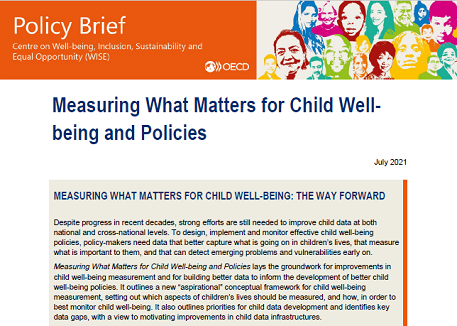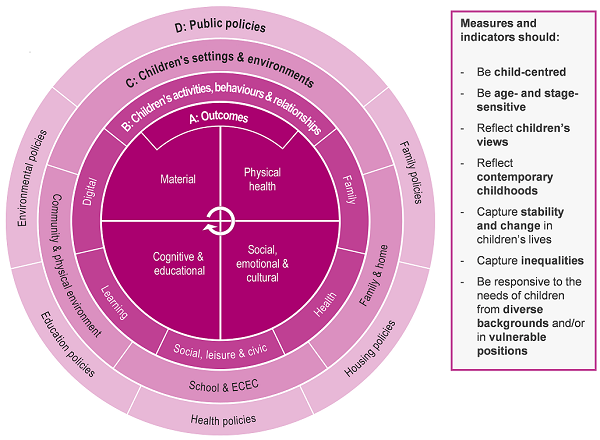Publications

Measuring What Matters for Child Well-being and Policies
To design, implement and monitor effective child well-being policies, policy-makers
need data that better capture children’s lives, measure what is important to them
and detect emerging problems and vulnerabilities early on. Despite improvements in
recent decades, there are still important gaps in both national and cross-national
child data. Countries can achieve progress if the right actions are taken.
Measuring What Matters for Child Well-being and Policies lays the groundwork for improved
child well-being measurement and better data to inform better child well-being policies.
It outlines an “aspirational” framework for child well-being measurement, setting
out which aspects of children’s lives should be measured, and how, to better monitor
child well-being. It also outlines priorities for child data development and identifies
key data gaps, all with the aim of motivating improvements in child data infrastructures.
Published on July 01, 2021
TABLE OF CONTENTS
| Foreword | |
| Executive summary | |
| Overview and summary | |
| Measuring what matters most for children | |
| Do children have the things they need? | |
| Are children active and physically healthy? | |
| Do children feel safe and secure, respected, included and happy? | |
| Are children learning and achieving in education? |
Powered by OECD iLibrary

